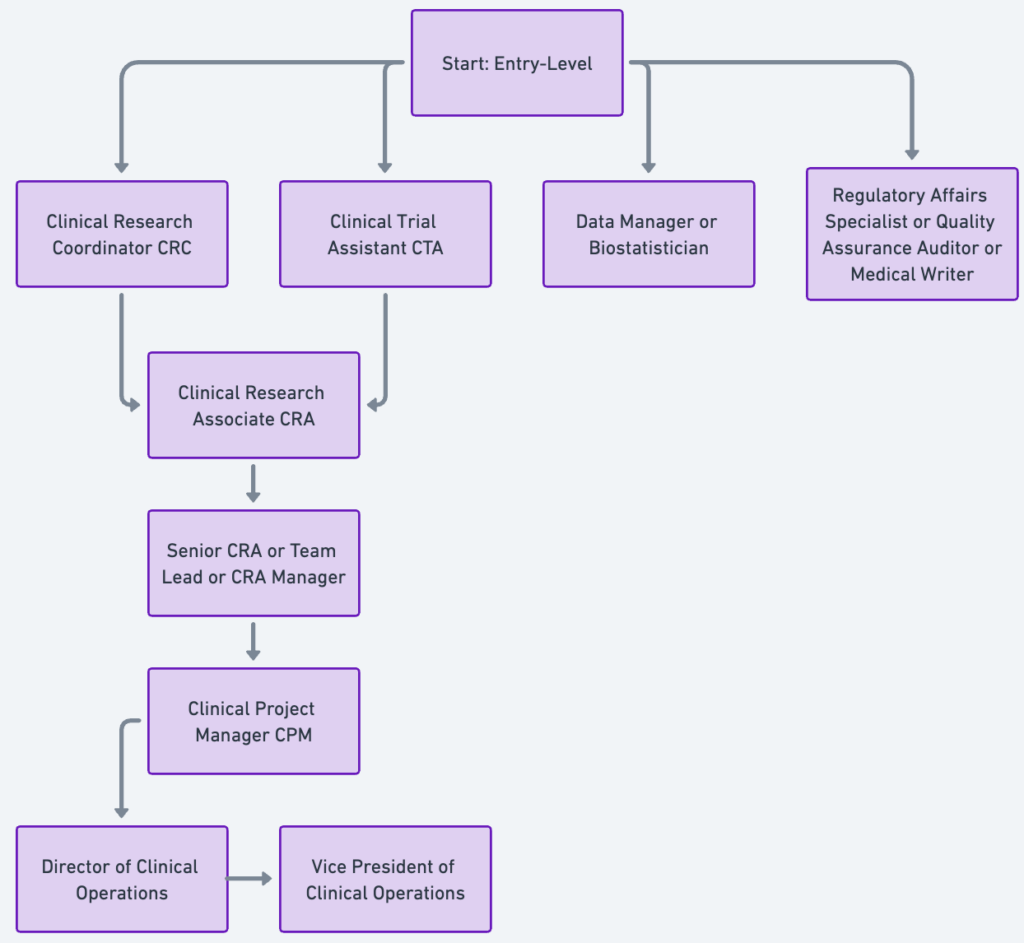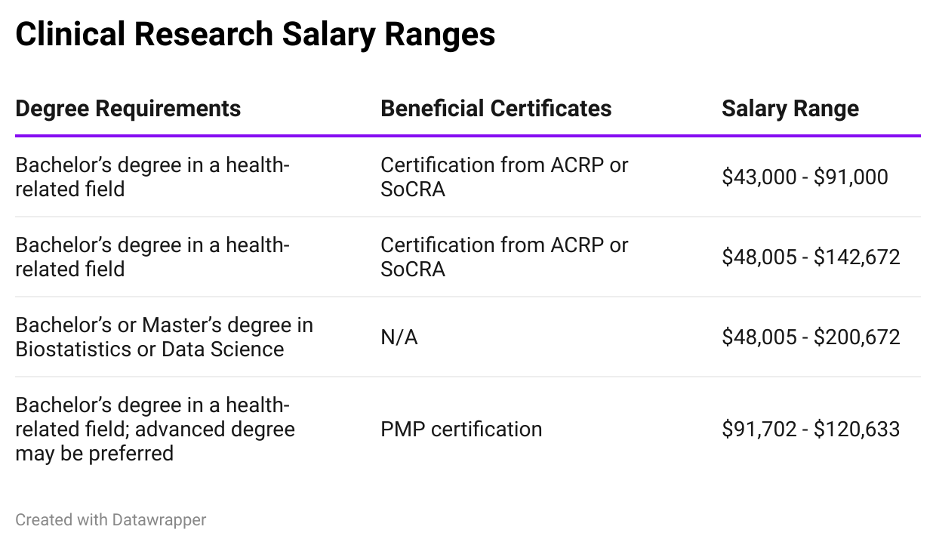Unlocking Rewarding Career Opportunities
Congratulations! You graduated!? Starting on a career path after graduation can be an exciting and challenging adventure, and more often than not you have minimal knowledge of what lies ahead. Or maybe you have a plan, know it all, and therefore are way better prepared than I ever was. Either way, you heard there might be opportunities in Clinical Research and wanted to learn more. Great, saddle up, life is a highway and it’s good to have a map.
Clinical research serves as the foundation for scientific and medical progress, bridging the gap between groundbreaking discoveries in the laboratory and their real-world implementation in patient care. This multidisciplinary field focuses on the evaluation of new treatments, devices, diagnostic instruments, and medical interventions in humans, with the ultimate goal of ensuring safety and efficacy.
Clinical research offers a wide range of career opportunities, allowing you to apply your skills and knowledge in a variety of settings, such as pharmaceutical companies, contract research organizations (CROs), academic institutions, and government agencies. As a clinical research specialist, you may find yourself working in positions as a clinical research associate, clinical data manager, biostatistician or medical writer, and many more.
One of the most compelling aspects of a clinical research career is the opportunity to contribute to the development of life-changing therapies and medical innovations. Your work will play an important role in shaping the future of healthcare, as you help identify new treatments and interventions that have the potential to improve patient outcomes and improve the overall quality of life for millions of people around the world.
Career Progression in Clinical Research: From Entry-Level to Leadership
Clinical research is a diverse field offering a range of rewarding career paths. Starting at the entry level, individuals may begin their career as a Clinical Research Coordinator (CRC) or a Clinical Trial Assistant (CTA). In these roles, they will gain valuable experience in the day-to-day operations of clinical trials and develop the skills and knowledge necessary to advance in their career.
After gaining experience as a CRC or CTA, individuals may have the opportunity to move into a Clinical Research Associate (CRA) position. As a CRA, they will be responsible for monitoring the conduct of clinical trials across multiple sites to ensure compliance with the study protocol, standard operating procedures, good clinical practice, and regulatory requirements.
As CRAs gain more experience and expertise, they may progress to more senior CRA roles, become a team lead, or move into a CRA manager position. From there, they may have the opportunity to become a Clinical Project Manager (CPM), responsible for overseeing the planning and execution of clinical trials.
Beyond the CPM role, there are opportunities for further advancement into higher-level management positions such as Director or Vice President of Clinical Operations. These roles involve strategic planning and decision-making for the clinical research program of an organization.
With significant experience in clinical research, you could aspire to become a Clinical Project Manager. In this role, you would oversee the entire clinical trial, managing the timelines, resources, and budget. This includes coordinating with the research team, ensuring the trial stays on track, troubleshooting any issues, and liaising with sponsors and stakeholders. This role requires a deep understanding of the clinical research process, excellent project management skills, and strong leadership abilities. Further qualifications in Project Management, like PMP certification, can be advantageous in this role.
There are several other roles within the field of clinical research that individuals with a bioscience degree may pursue. These include positions such as Data Manager, Biostatistician, and Clinical Project Manager.
As a Data Manager or Biostatistician, you would be responsible for the collection, management, and analysis of the vast amounts of data generated by clinical trials. These roles require strong analytical skills, proficiency in statistical software, and a keen eye for detail. A further qualification in Biostatistics or Data Science can be highly beneficial for these roles.
These are just a few examples of the many roles available within the field of clinical research. Other roles include Regulatory Affairs Specialist, Quality Assurance Auditor, Medical Writer, and many more. Your bioscience degree provides a solid foundation for any of these roles, but further qualifications, experience, and specialized skills can enhance your career prospects. Be proactive in seeking opportunities, learning new skills, and building a professional network in the field of clinical research.
Salary Expectations, Degrees and Certifications in Clinical Research
In addition to the satisfaction of making a difference, clinical research professionals often enjoy high levels of job security and competitive salaries. The need for qualified researchers continues to grow. While salaries may vary depending on role, experience, geographic location, and the type of organization you work for, here are some specific recent figures.
Degrees and Certifications
While a biosciences degree provides a strong foundation for a career in clinical research, further specializations or certifications can give you a competitive edge in the job market. Pursuing a Master’s degree in Clinical Research, Public Health, or a related field can provide you with a deeper understanding of clinical research protocols and processes. This advanced education can help you stand out from other candidates and may open up additional career opportunities.
Professional certifications from organizations like the Association of Clinical Research Professionals (ACRP) and the Society of Clinical Research Associates (SoCRA) can also be valuable. These organizations offer certifications for different roles in clinical research, including the Certified Clinical Research Professional (CCRP) and Certified Clinical Research Associate (CCRA) certifications. Earning these certifications demonstrates your knowledge and expertise in clinical research and can help you advance in your career.
Building a Successful Career in Clinical Research
Overall, pursuing further education and professional certifications can enhance your career prospects in clinical research and help you stand out in a competitive job market. As a bioscience graduate entering the field of clinical research, it’s important to leverage the power of networking. Attend industry conferences and join professional associations to meet like-minded individuals and seasoned professionals. Find a mentor who can provide guidance and advice, and commit to continuous learning to stay up-to-date with industry trends and regulations.

Your bioscience degree has given you a strong foundation, but further education and practical experience can enhance your career prospects. Consider pursuing internships or part-time jobs in clinical research to gain hands-on experience. Essential skills in the field include excellent communication, attention to detail, organizational abilities, and problem-solving skills.
Effective communication, teamwork, and problem-solving skills are also essential, as you will often collaborate with a variety of professional groups, including doctors, scientists, and regulatory agencies.
Additionally, staying up to date with the latest advances in your field is critical to successful clinical research. This may involve attending conferences, participating in seminars, and participating in ongoing professional development to ensure that your knowledge and skills are kept up-to-date and relevant.
Conclusion
Clinical research offers a world of opportunities for bioscience graduates seeking a challenging and rewarding career that offers a unique combination of intellectual stimulation, career development, and the opportunity to significantly impact patients’ lives.
With patience, perseverance, and a passion for improving healthcare, you can build a successful career in this dynamic field. Best of luck on your journey!


